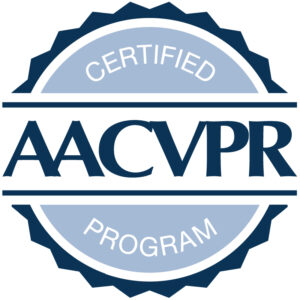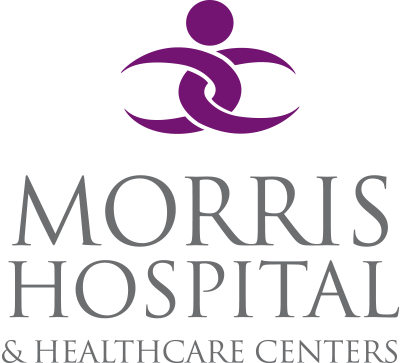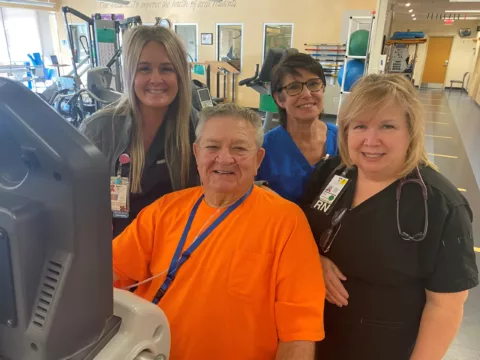
Morris Hospital’s Pulmonary Rehabilitation program located at the Morris Hospital YMCA, 2200 W. Dupont Avenue in Morris is here to help individuals with chronic breathing problems improve their quality of life by making the most of their lung function. Participating in Pulmonary Rehabilitation can:
- Lessen shortness of breath, and in some cases, the need for additional oxygen
- Improve overall cardiopulmonary health
- Lower the chances of exacerbations and hospitalization
- Help with weight loss and smoking cessation
Pulmonary Rehabilitation is recommended for adults who are increasingly limited in everyday activities due to chronic obstructive pulmonary disease (COPD), chronic bronchitis, emphysema, asthma, pulmonary or cystic fibrosis, hypoxemia, bronchiectasis, post operative lung surgery, post pneumonia, post pulmonary embolism, and past COVID infections with respiratory symptoms.
A referral from a physician is required to participate. A lung function test may also be required before enrolling in Pulmonary Rehabilitation.
The Morris Hospital Pulmonary Rehabilitation program is certified by the American Association of Cardiovascular and Pulmonary Rehabilitation.
For more information, please call Morris Hospital’s Pulmonary Rehabilitation program at 815.705.3629. Referrals can be faxed to: 815.705.7838.
Follow this link to our Health Topics page to read Bill B’s Pulmonary Rehabilitation story!
FREQUENTLY ASKED QUESTIONS:
What can I expect during Pulmonary Rehabilitation?
Our Phase 2 Pulmonary Rehabilitation is a 12-18 week program that meets on Tuesdays and Thursdays at the Morris Hospital YMCA, 2200 W. Dupont Avenue in Morris. The program incorporates physical reconditioning (exercise), self care education including how to reduce risk of lung infection, breathing strategies, and techniques to help participants improve their ability to carry out activities of daily living, all in a supportive setting that promotes social interaction and emotional well-being.
The exercise component of the program is tailored to each participant’s individual needs. Most often, the exercises involve both the arms and legs through use of a treadmill, walking track, recumbent stepper, recumbent elliptical, arm ergometer, stationary and resistance bike, weights, and bands. The exercises are designed to improve endurance and muscle strength to help participants better carry out daily activities.
During class, participants are closely monitored by a multi-disciplinary team that helps each individual reach his or her goals. If you are currently on oxygen, the program will provide oxygen while you are exercising.
After graduating from Phase 2, participants may qualify to continue exercising with Morris Hospital’s Phase 3 pulmonary rehabilitation program. Phase 3 is referred to as the maintenance phase because it is an excellent way to maintain the health benefits and improved quality of life achieved through Phase 2.
Does Pulmonary Rehab include educational topics?
Along with physical reconditioning, a number of educational topics are covered in Pulmonary Rehabilitation. Participation in educational programs and events is encouraged for both Phase 2 and Phase 3 participants:
- Nutrition
- Lung Anatomy and Disease/ Medical Tests
- Breathing Retraining/Oxygen Titration
- Safety and Travel with Oxygen
- Benefits of Exercise
- Airway Clearance / Infection Control
- Energy Conservation
- Emotional / Social Well Being
- Respiratory Medications
- Advanced Health Care Directives
- Smoking Cessation
- Sleep Disorders
- Lung Action Plan
- Disaster Preparedness
Will my insurance cover Pulmonary Rehab?
Those interested in participating in Phase 2 Pulmonary Rehabilitation should check with their insurance provider to verify coverage.
Phase 3 Pulmonary Rehabilitation is not covered by insurance. A physician’s referral and yearly health assessment are required for participation in Phase 3.

